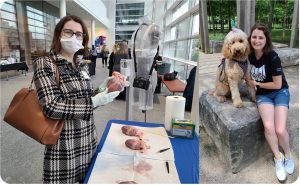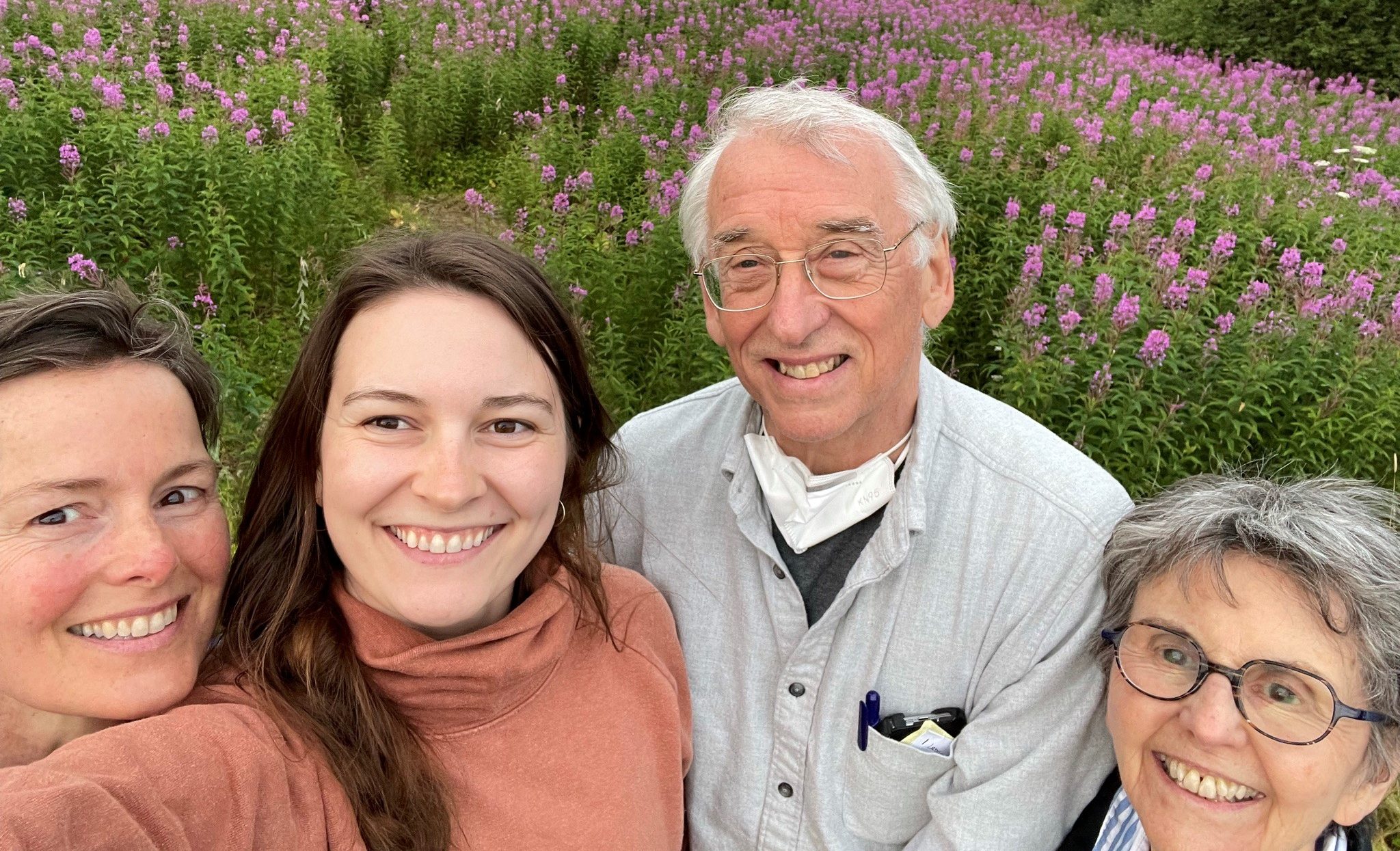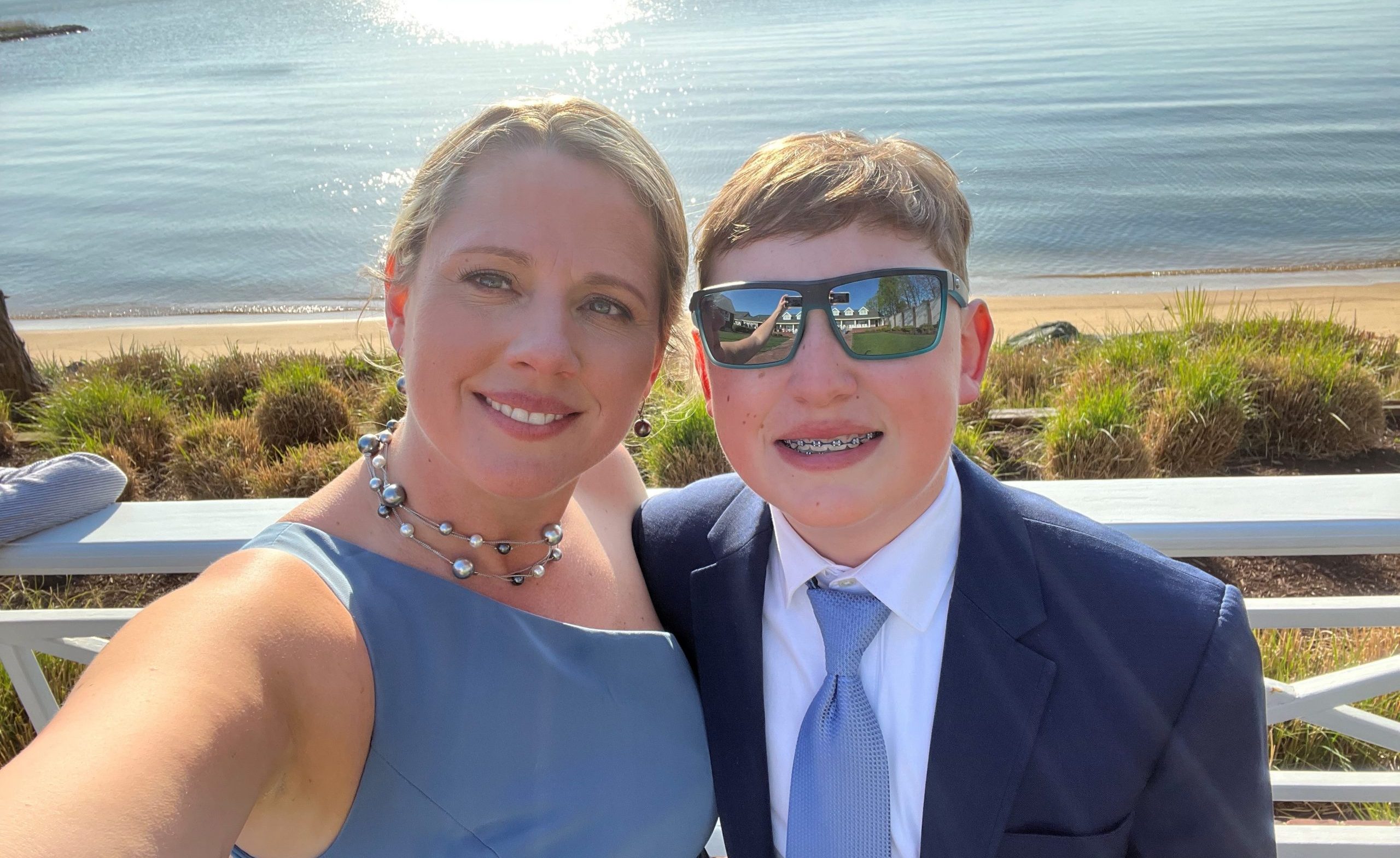A Woman’s Decade-Long Battle Living with Chronic Recurrent Pericarditis and the Impact on Her Dream of Starting a Family
2 Oct 2023 • 5 minute read

Stolina Qirjazi, a 33-year-old woman from Cleveland, Ohio, describes living with chronic recurrent pericarditis for over a decade and the limitations this condition has imposed on her life, “Be positive. Keep going. Everyday there is hope. Never give up. Never, never.”
Stolina is a resilient and spirited woman whose path has been shaped by the uninvited presence of chronic recurrent pericarditis for more than a decade. Arriving in the United States from Albania at a young age with hope and ambition in her heart, Stolina faced the trials of navigating language barriers and acclimating to a new culture. Undeterred by these hurdles, she persisted in her quest for a brighter future. Her determination led her to become a distinguished nurse practitioner at the esteemed Cleveland Clinic, an institution renowned for its medical excellence. Beyond her illustrious career, she is a devoted dog-mom to her two beloved companions, Coco and Cooper, while nurturing her passion for gardening, and satisfying her profound wanderlust to explore the world. Yet, despite her achievements, chronic recurrent pericarditis has thwarted her dreams of starting a family. Nevertheless, Stolina’s extraordinary journey exemplifies the strength of the human spirit in someone who refuses to be defeated and continues to embrace life.
Over a decade ago while tirelessly juggling the academic demands of college and working two jobs, Stolina was struck by an abrupt chest pain that threatened to derail her ambitious career. She experienced this pain particularly during the fall and winter months, making even the act of walking difficult at times. “I would get out of class, walk outside in the parking lot, and be holding my chest because it felt very tight and I was afraid that I was going to pass out,” she reminisces. Stolina had to rely on her friends who often escorted her from class to her car to ensure that she got there safely. Fearing the implications of her symptoms, she reached out to her primary care physician and an urgent care facility. To her frustration, they trivialized her condition, attributing it to her youth, and labeled it as costochondritis, issuing a prescription for ibuprofen. Despite the medication, her pains remained unrelieved, casting a shadow on her daily life. Later in 2011, after Stolina went into the emergency room for her ulcerative colitis, her doctors incidentally discovered a pericardial effusion, which is an accumulation of fluid in the pericardium where the excess fluid can take up space in the pericardium, compressing the heart.

Over the ensuing years, Stolina’s symptoms were unpredictable as she experienced chest tightness and discomfort as well as difficulty breathing, yet she remained undeterred, steadfastly pursuing her college education while holding down her two jobs. As the stress in her life increased, her symptoms got worse. Her doctor recommended a pericardiectomy, but Stolina deferred this, temporarily committed to living with her symptoms. Caught in the whirlwind of her busy life, she scarcely had a moment of time to evaluate her health and continued to pursue her dreams. “This is my life, that’s how it’s going to be. No matter what discomfort I was feeling I still pushed through and kept going and doing things.” Even as her symptoms persisted and worsened under the weight of stress due to the conclusion of her education and embarking upon her nursing career, Stolina pressed forward, committed to not let this impede her life’s journey.
After five arduous years in constant turmoil of sudden pains with a diagnosis of pericardial effusion, Stolina grew disheartened by the burden of ill health. During a trip to Italy in 2016, her chest pains flared up, prompting her to seek help at two different emergency departments, hoping for a breakthrough. The initial visit yielded familiar results, mirroring the medical advice she had received in the US. However, on her second visit, a glimmer of hope emerged as the doctors administered IV Aspirin, bringing her much-needed relief. Stolina described the experience as revelatory because she finally reconnected with what it felt like to have a sense of physical normalcy after years of suffering, “I felt so good. For the first time in years, I felt what it was like to be back to normal and I wanted to continue to feel this way”. The realization struck her, prompting the understanding that her condition should not act as a barrier to experiencing life and she made it her mission to find a way to reclaim control. In her quest for answers, Stolina turned to online resources and sought insights from other cardiologists in the US as well as individuals who shared a similar experience. She had no luck finding friends with similar experiences and this created a feeling of isolation. Despite finding short-term respite from the medication administered in Italy, she was disheartened by the lack of progress toward a lasting solution and continued to have persistent chest pains, often rendering her dependent on her family and friends for support in every aspect of her life.
Towards the end of 2017, Stolina’s pericardial effusion symptoms had continued and were worsening. To resolve this, and in preparation for trying to start a family, Stolina’s doctors recommended pericardial window surgery, which is a procedure performed to provide a pathway for accumulated fluid or blood within the pericardial sac to drain out into the surrounding tissues or a cavity, allowing the pressure on the heart to be relieved. Post-surgery she was engulfed by a sharp stabbing pain in her chest along with a radiating pain through her right shoulder, which eventually resolved. Additionally, the surgery was unsuccessful in managing her symptoms long term. In 2018 after surgery to remove Stolina’s large intestine due to her ulcerative colitis, Stolina again experienced a sharp stabbing pain in her chest post-surgery, similar to that she experienced in 2017. Perplexed, the doctors did not know what to make of it and believed that her pain was caused by the gas they had pumped into her during the surgery, and she was discharged from the hospital. Advocating for her health, Stolina contacted her home health nurse who told her that the pain should not last for that long. After her discussion, she returned to the emergency department three times and finally had a chance to consult with a cardiologist, who conducted further tests, including a cardiac MRI. The results revealed inflammation in the pericardium, leading to a diagnosis of pericarditis. Regardless of having a diagnosis, Stolina found little solace as the treatment plan at the time mirrored what she had previously received for pericardial effusion. She tried a variety of medications over the following years including non-steroidal anti-inflammatory drugs (NSAIDs), colchicine, and prednisone; however, nothing provided long term relief from the pain and discomfort. “I was on and off medications because we didn’t see any improvement in my symptoms. It would work for a short amount of time, and then suddenly the symptoms would reappear, and I would flare again,” she described. Reflecting on her condition, she shared her anguish, “This was intense pain. I could live with discomfort, but when it flares, it’s unbearable, It’s agony.” Further complicating her case was Stolina’s severe ulcerative colitis. For her, taking certain NSAIDs led to bleeding and ulcers so she could not take it long-term. She also dealt with repeated flares upon tapering of the prednisone and experienced this over several years. Looking back, Stolina knew that her prescribed medication was not managing her symptoms and for several years she could not work, only feeling some sense of relief and happiness when her family adopted her beloved dogs.
The relentless pain continued to torment her, challenging her resilience and making every day an uphill battle. While on another trip in Italy, Stolina made an appointment with a renowned cardiologist to examine her pericarditis. He recommended she take an interleukin-1 receptor antagonist to reduce the inflammation and gave her a prescription. After giving this medication a try, it too provided minimal relief and she decided to discontinue her prescribed medications, “I told my cardiologist that there’s no point in taking this because it did not fully resolve my pain.” Aside from being ineffective in alleviating her symptoms, Stolina expressed that the cost of the medication in the US was exorbitantly high, and the medical regimen hindered her ability to travel, which made her reluctant to proceed with this new treatment.

Throughout her many years battling recurrent pericarditis, ulcerative colitis, and nerve pain, along with grappling with the side effects of long-term prednisone use, one of the aspirations of Stolina and her partner, Lance, was to have a family, however this has been impeded by her health issues, “Every year it seems like there’s always been some kind of complication with my health or medications and it feels like there’s never a good time.” Despite the challenges imposed by the unpredictable nature of her condition, Stolina has endeavored to minimize her reliance on medications, “I have been wanting to try to get pregnant and wanted to be clear of everything, so I’m doing my best to not start any new medications.”
Today, Stolina is back on a prednisone tapering schedule and taking specific NSAIDs while doing everything possible to decrease the overall inflammation in her body, including limited exercise and maintaining an anti-inflammatory diet. “I’m having pain, but it’s manageable right now,” she explained. Stolina shared her experience of encountering difficult days in the past, questioning why fate had dealt her such a hand and whether recovery was possible. However, her positivity and optimism guide her through those challenging moments and continue to give her hope. “All the things that I’ve learned and all the people that I’ve met who are getting the word out about pericarditis have been absolutely amazing. It makes me go back and say ‘Look at what I’ve accomplished by being positive and by doing something instead of just being sad about my life’,” she reflected. Some days she cannot stand the pain and misses work and also questions her ability to endure. This has definitely affected her day-to-day life and her plans to start a family once again. In spite of a multitude of challenges, Stolina consistently returns to her cheerful and optimistic disposition, finding solace in her partner, her family and her cherished animal companions, who all provide the crucial support and motivation she needs to persevere daily.
Stolina’s hope is that there is going to be more research, which will lead to answers and more treatments so that patients can live a better life. She further underscored the significance of support groups and communities, where individuals can share their experiences and emotions with people who have similar experiences, “Firstly, educate yourself as much as possible. Find communities to connect with others, like the Pericarditis Alliance support group, to share your story and learn from other people.” She also discussed finding a cardiologist, specifically one that specializes in pericarditis, because this can increase your chances of being treated correctly the first time. With great fervor, Stolina envisions a future where the healthcare system places people’s health and wellbeing at its very core: “I hope people will really be looked at as a whole. Health care providers need to take the time that is required so that nothing is missed.” Stolina’s message to those walking a similar path, facing recurrent pericarditis, is profoundly impactful, “Be positive. Keep going. Everyday there is hope. Never give up. Never, never.”

Pericarditis Alliance
The Pericarditis Alliance is a nonprofit organization dedicated to the diagnosis, management, and treatment of pericardial disease through research, education, and support for patients and healthcare providers.


